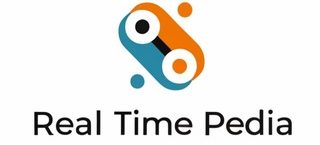
The Science Behind Nutrition Supplements: Navigating Benefits and Risks
Introduction
In today’s fast-paced world, where healthy living has become a priority for many, the use of nutrition supplements has gained significant attention. These products, available in various forms such as pills, powders, and liquids, promise to bridge the nutritional gap and enhance overall well-being. However, as with any health-related trend, the efficacy and safety of nutrition supplements warrant a closer look. This article delves into the science behind nutrition supplements, exploring their benefits and potential risks.
Understanding Nutrition Supplements
Nutrition supplements are designed to provide essential vitamins, minerals, herbs, amino acids, or other dietary components that one may not be getting enough of through their regular diet. These products come in various forms and are often marketed with promises of boosting energy, improving immunity, supporting muscle growth, and enhancing cognitive function, among other benefits.
Benefits of Nutrition Supplements
- Filling Nutritional Gaps: In some cases, individuals may have dietary restrictions or preferences that make it challenging to obtain all necessary nutrients from food alone. Supplements can help bridge these gaps and prevent deficiencies.
- Targeted Support: Certain supplements can be beneficial for specific groups, such as pregnant women taking folic acid for fetal development or athletes using protein supplements to aid muscle recovery.
- Convenience: For individuals with busy lifestyles, supplements offer a convenient way to ensure they’re getting essential nutrients without meticulous meal planning.
- Certain Medical Conditions: Some medical conditions or age-related factors may necessitate increased intake of certain nutrients. Supplements can be prescribed by healthcare professionals to address these needs.
Risks and Considerations
While nutrition supplements can offer benefits, it’s essential to be aware of potential risks and considerations:
- Regulation and Quality Control: The supplement industry is not as strictly regulated as the pharmaceutical industry. This lack of oversight can lead to inconsistent product quality and misleading claims.
- Overdosing: Consuming excessive amounts of certain nutrients can lead to toxicity and adverse health effects. This is particularly concerning when combining supplements with fortified foods and a balanced diet.
- Interaction with Medications: Supplements can interact with prescription medications, affecting their efficacy or causing harmful side effects. It’s crucial to consult a healthcare professional before adding supplements to your regimen.
- Not a Substitute for a Balanced Diet: Supplements should never replace a healthy diet. Whole foods provide a wide array of nutrients, fiber, and phytochemicals that supplements cannot replicate.
Evidence-Based Approach
When considering nutrition supplements, an evidence-based approach is crucial:
- Scientific Research: Look for supplements that have been studied extensively in clinical trials. Peer-reviewed research can provide insights into their effectiveness and safety.
- Dosage and Form: Follow recommended dosage guidelines and choose supplements in forms that are well-absorbed by the body. Different forms can have varying bioavailability.
- Consult Professionals: Prior to introducing any supplement into your routine, consult with a registered dietitian or healthcare provider. They can assess your individual needs and help you make informed decisions.
Conclusion
Nutrition supplements can play a valuable role in supporting health and well-being, especially when used thoughtfully and under professional guidance. However, it’s essential to approach them with caution, considering both their potential benefits and risks. Remember that a balanced diet, rich in a variety of whole foods, remains the foundation of good nutrition. As with any health-related decisions, prioritize evidence-based choices and consult experts to ensure you’re making the best choices for your individual needs.








